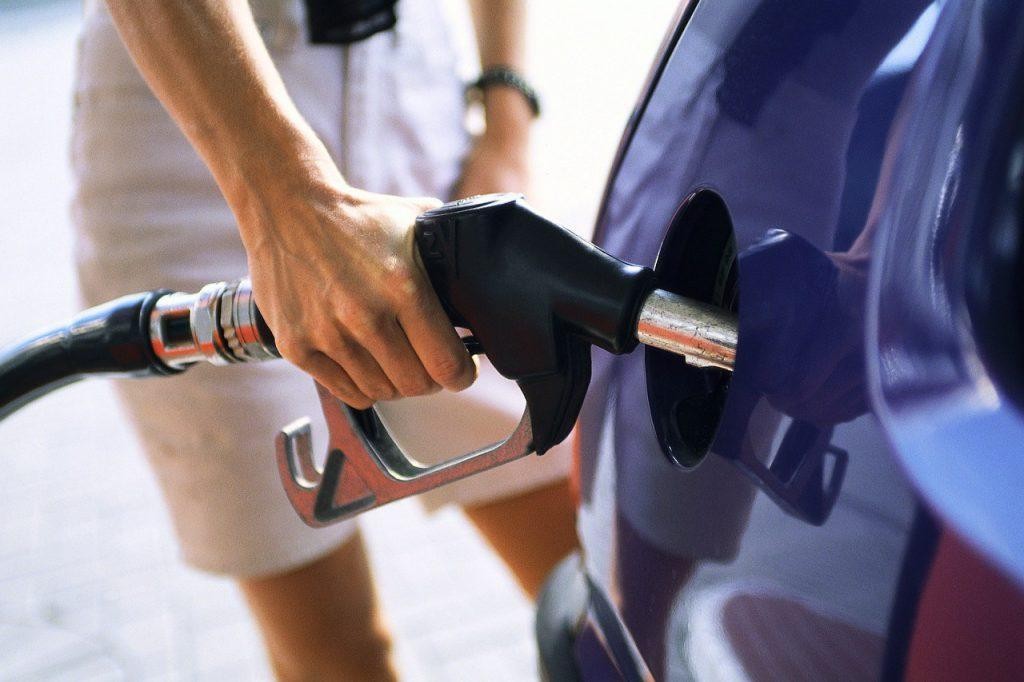Automobiles are complex machines that can be sensitive to extreme weather conditions. From scorching summers to frigid winters, your car faces numerous challenges. Cold winter weather, in particular, can bring about a host of problems, from hard starts to increased wear and tear. One common concern that many drivers have is: Can Gas Freeze In Your Car during the winter months?
Many drivers operate under the assumption that gasoline can easily freeze, especially if their fuel tank is low. This belief often leads to the practice of keeping the gas tank at least half full throughout the winter. While it’s true that cold weather can negatively impact your vehicle in various ways, the idea of gasoline freezing in your gas tank under normal winter conditions is largely a myth.
Can Gas Freeze in Your Car? Understanding the Science
A significant drop in temperature can indeed cause several adverse effects on your car’s performance. Many drivers worry about gasoline freezing, fearing costly damage to their fuel tanks and fuel lines. They often adhere to the “half-tank rule” to prevent this perceived issue. But can gasoline freeze in your car’s fuel tank in the way many people imagine?
Gasoline, or “gas” as it’s commonly known, possesses a remarkably low freezing point compared to water. This means that under typical winter temperatures experienced in most inhabited regions, gasoline is highly unlikely to freeze inside your vehicle’s fuel tank.
Decoding Gasoline’s Freezing Point
So, at what temperature does gasoline freeze? Pure gasoline has a freezing point of approximately -100 degrees Fahrenheit (-73 degrees Celsius). This extremely low temperature threshold means that for gasoline to solidify, you would need to experience conditions far colder than practically anywhere on Earth, outside of perhaps extreme polar regions.
It’s important to note that this freezing point can vary slightly depending on the specific blend of hydrocarbons and additives in the gasoline. For instance, components like octane can influence the freezing point. Furthermore, diesel fuel has a significantly higher freezing point than gasoline, and diesel fuel gelling can become a concern around 32°F (0°C). This is why fuel companies often offer different fuel blends tailored for summer and winter driving. Winter blends often include additives to prevent diesel fuel from gelling in cold temperatures.
Considering these facts, the scenario of gasoline freezing solid in your car’s tank is exceptionally improbable in most climates. You’re simply not going to encounter temperatures cold enough to freeze gasoline in your car under normal driving conditions.
While frozen gasoline isn’t a realistic concern for gasoline-powered vehicles, cold weather can still pose challenges to your car’s fuel system. Moisture buildup within the gas tank is a more common issue. Water can enter the fuel system through condensation, and if this water freezes, it can cause problems at temperatures much higher than gasoline’s freezing point.
Therefore, to reiterate, can gas freeze in your car in the sense of the gasoline itself solidifying? Almost certainly not. However, the presence of water in your fuel system due to condensation is a cold-weather concern that can lead to fuel line freeze.
Our Recommendation: If you live in an area prone to very cold winters, maintaining at least a half-full gas tank during the coldest months is a wise precaution. This practice minimizes the amount of air in the tank, which in turn reduces condensation and the potential for water to accumulate and freeze in your fuel lines, causing blockages.
The Real Issue: Problems with Low Fuel in Cold Weather
While the freezing point of gasoline itself is extremely low, consistently driving with a low fuel tank, particularly in cold weather, can lead to other problems that affect your engine’s health and performance. If you frequently operate your vehicle with the fuel gauge hovering around the quarter-tank mark, you might encounter issues such as:
-
Frozen Fuel Lines: Even if gasoline doesn’t freeze, any water present in the fuel tank or fuel lines can freeze at 32°F (0°C). This frozen water can obstruct the fuel lines, preventing fuel from reaching the engine and potentially causing your car to stall or not start at all. This is a much more common cold-weather fuel problem than gasoline freezing.
-
Fuel Pump Stress: The fuel pump, which is typically located inside the fuel tank, relies on gasoline to keep it cool and lubricated. When you consistently run your car with a low fuel level, the fuel pump is more likely to overheat and wear out prematurely, leading to costly repairs.
-
Inaccurate Fuel Gauge Readings: Cold temperatures can sometimes affect the accuracy of your fuel gauge. It might display a higher fuel level than actually present in the tank. Relying solely on the fuel gauge in very cold weather, especially when running low on fuel, can be risky and could leave you stranded with an empty tank.
Preventing Cold Weather Fuel System Issues
The most straightforward way to avoid fuel-related problems in cold weather is to keep your fuel tank adequately filled. While keeping it completely full isn’t always practical, aiming for at least half a tank, especially during winter, is a good habit.
To further protect your fuel system from moisture-related issues, ensure your fuel lines are in good condition and free from leaks. Cracks or holes can allow moisture to enter, increasing the risk of fuel line freeze. In regions with very cold winters, consider using fuel additives designed to prevent fuel line freeze and remove water from the fuel system. These additives work by lowering the freezing point of water and helping it to disperse safely through the fuel.
Avoiding fuel blends with high alcohol content, especially during freezing temperatures, can also be beneficial. Alcohol can attract and hold onto moisture, potentially exacerbating water-related fuel problems in cold weather.
So, can gas freeze in your car? No, not really in the way most people worry about. But, by understanding the real cold-weather fuel concerns and taking preventative measures, you can ensure your car runs smoothly throughout the winter months. The focus should be on preventing water accumulation and fuel line freeze, rather than worrying about the gasoline itself solidifying.

